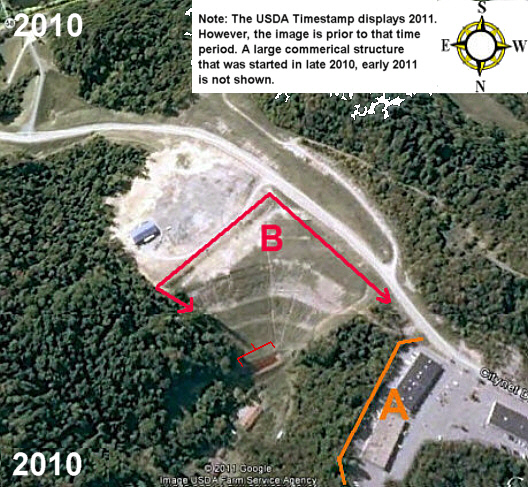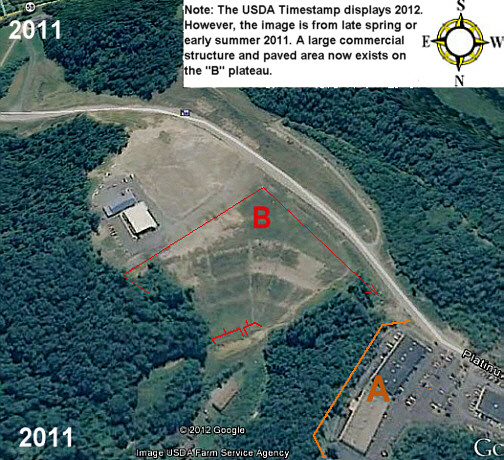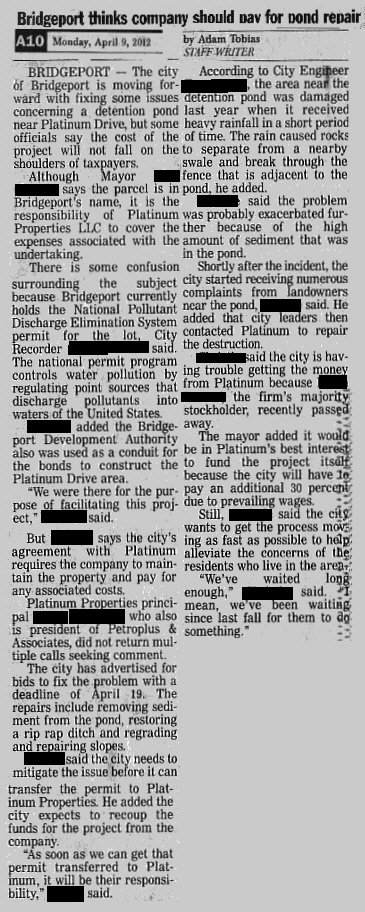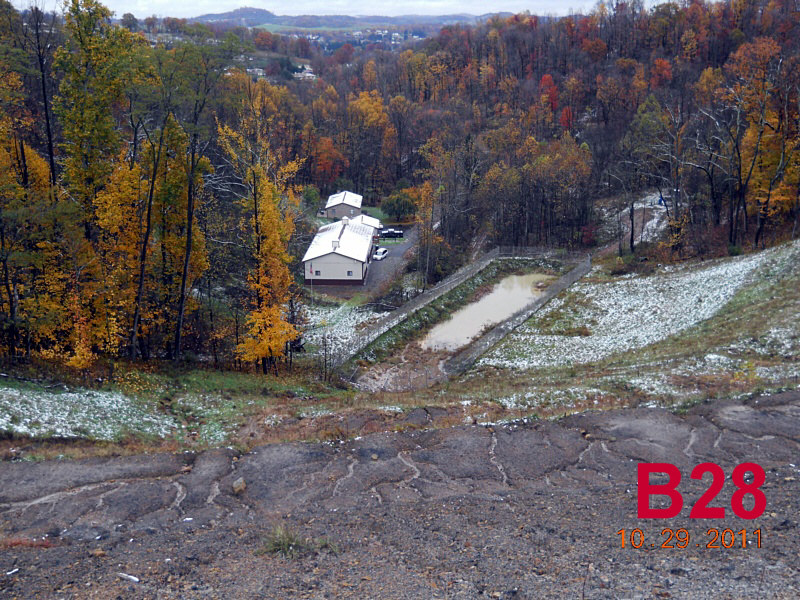In October 2011, a multi-degreed engineering
professional conducted a thorough examination and documentation of various
tracts of commercial and government-partnered properties, utilizing his
extensive experience across diverse topographies and forms of government.
(Interactive Big Map)
Building 109's
area (illustrated
a A lower right), was examined and documented.
"Drainage is being released on your property, this is absolutely forbidden"
The developer's statement of allowance was provided.
A observation referencing a Societal Breakdown was the response.

A Governmental Slope and Retention Pond, (center),
was extensively examined and documented.

An initial observation firmed;
"The slope is too steep and it will never stop deteriorating"
He asked "Was there a forest here before?"
Yes.
"This Is Not American Engineering"
The engineer diligently sought specific engineering
plans, navigating the State, County, and City offices in West Virginia with
expertise. During this process,he not only located necessary documents at the
City of Bridgeport but also took the time to explain the relationship between
law and the symbolic significance of the county courthouse. Promised copies of
the plans were to be delivered within days, allowing the engineer to return to
Munich, Germany, on November 1, 2011, where he awaited the scheduled delivery of
these crucial documents.
The Plans Were Not Delivered.
After submitting multiple Freedom of Information
Requests to various government officials, the engineering plans were finally
obtained from the City of Bridgeport around November 18, 2011. These documents
were then promptly forwarded to Munich, Germany, completing the engineer's
effort to secure the necessary information for their project while overseas.
In late March 2012, we
received a concerning message from Germany indicating that the engineering plans
for the slope and retention pond were entirely ignored, leading to a devaluation
of our property due to significant structural defects.
The message
detailed how the
Original Area, previously deemed unsuitable by a regulatory agency, had been
revisited with the involvement of government partners, including the City of
Bridgeport and the State of West Virginia, resulting in the allocation of
substantial taxpayer dollars. Unfortunately, the project led to the destruction
of a stabilizing forest and the creation of a structurally deficient
developmental support slope and storm drainage system,
Reminiscent of
past failures on our property but now exacerbated by broader geographical and
political ramifications.
On April 9, 2012 a local newspaper published an articl

The article's unclear references have seemingly
obscured the specific location of the area in question, leading to confusion
about the costs associated with cosmetic repairs to the support slope and storm
drainage retention system, a
topic initially raised in
2007. Furthermore, it highlights the government's
controversial strategy to shift overall liability to their business partner,
Platinum Properties, raising concerns about accountability and the implications
for local stakeholders affected by the ongoing structural issues.
Note:
Lifelong resident Frank Lacaria expressed grave concerns about the water
discharging from the storm drainage retention pond, noting that it is incapable
of sustaining life, as evidenced by the immediate death of small fish and frogs.
He suggested that the destabilization efforts had unleashed previously dormant
contaminants into this water source, impacting not only the local ecosystem but
potentially extending the consequences to surrounding areas, raising alarms
about environmental safety and public health.

|
Corporate Responsibility and Liability
|
The government should not
entrust the future of taxpayer-funded construction projects to private
companies, particularly in a region marked by a history of reactionary
agreements, frequent ownership changes, and quitclaim or deed transfers. Such a
Precedent
raises concerns about accountability and the long-term viability of projects,
suggesting a need for more robust oversight and commitment to the public
interest rather than reliance on volatile private partnerships.
|
|

